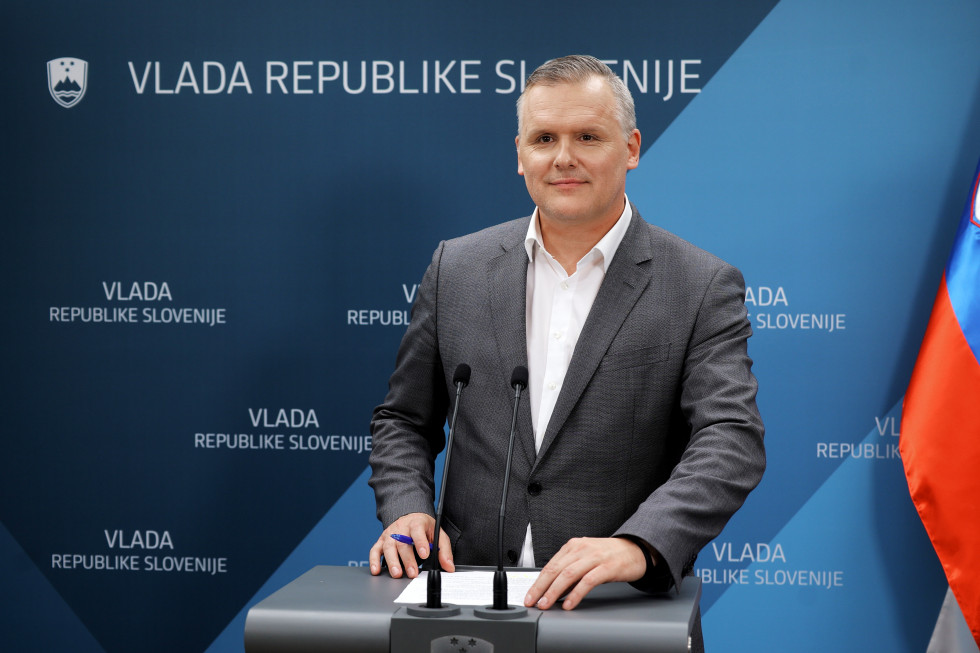Measures to alleviate energy poverty
The first major measure this year is a new Eco Fund public call for EUR 5 million to subsidise investments by energy-poor households. Another important innovation is the transfer of subsidies for self-sustaining solar power plant projects from the EcoFund to the Borzen company.
Last October, the Ministry already took a serious approach to tackling and reducing energy poverty with the Regulation on criteria for defining and assessing energy poverty. This forms the legal basis for the Action Plan to Alleviate Energy Poverty, which will be submitted to the Government next week. The Action Plan sets three overarching goals for 2030, aligning with the National Energy and Climate Plan (NEPN) update proposal. The first overarching goal is to reduce the share of energy-poor households to between 3.8% and 4.6%. The second goal is to invest in energy efficiency (EE) and renewable energy sources (RES) in at least 8,000 energy-poor households. The third goal is to achieve a cumulative energy savings target of 573 GWh from 2021 to 2030. The measures outlined in the draft Action Plan are planned with a long-term perspective, with a focus on their short-term implementation in the period 2024-2026. The plan is to make investments in EE and RES for energy-poor households, investments for the installation of new wood biomass combustion plants, investments in collective measures for the energy renovation of multi-apartment buildings, and investments for the integration of the energy poor into energy communities by the end of 2026.
Bojan Kumer, Minister for the Environment, Climate and Energy, stress that “these are priority energy efficiency measures reducing energy use and greenhouse gas emissions and improving living conditions for vulnerable groups in our society. The Action Plan is also crucial to ensure a fair transition to a low-carbon society for all, as well as to successfully allocate the support already available for alleviating energy poverty to vulnerable groups.”
To implement the Action Plan’s measures over the period 2024-2026, EUR 33.8 million is earmarked, of which EUR 27.0 million are envisaged for EE and RES investment measures, EUR 5 million for the integration of the energy poor into energy communities, and EUR 1.8 million for the operation of a project office with regional advisory points and an informal network for information and awareness-raising. Until the end of 2026, the main sources of funding are the Climate Change Fund and the European Regional Development Fund. At the EU level, the Social Climate Fund will also make funds available for reducing energy poverty in the period 2026-2032, with over EUR 300 million earmarked for Slovenia for various purposes, a large part of which is expected to be earmarked for these actions in the Action Plan.
The main provider of energy poverty alleviation measures is the Eco Fund. “The Eco Fund offers grants or incentives for the energy renovation of residential buildings even for the most vulnerable households, thus enabling them to actually improve their living conditions and reduce their energy costs by implementing measures that improve their buildings’ energy efficiency,” says Mojca Vendramin, Director of the Eco Fund.
Based on the experience from the ZERO500 Programme, where 426 residential buildings have been renovated with EU funding in the last few years, the Eco Fund is expected to launch a new public call for energy-poor households on 1 December 2023, under which it will be possible to obtain an incentive of up to EUR 18,000 or up to EUR 12,000 for insulating roofs and facades, installing energy-efficient windows, replacing old heating appliances with new wood-burning biomass appliances, and for other energy-saving solutions. The call is open to those who are at least half-owners of residential buildings or dwellings, who are materially deprived and live in buildings that are in a quite bad state of repair and in need of energy renovation. Potential investors can find more information on the Eco Fund website or directly contact the ENSVET network energy advisors, who provide free advice in offices across Slovenia. Under the new call for proposals, consultants will continue to advise applicants on how to carry out the measures, while those who are not familiar with renovating a building will be assisted throughout the whole process, i.e. from application to investment.
At today's joint press conference, Minister Kumer announced more news, namely the transfer of subsidies for self-sustaining solar power plant projects from the Eco Fund to Borzen. Currently, self-sustaining installations are co-financed through the Eco Fund by the Climate Fund resources, but after the establishment of the investment aid for self-sustaining installations within the Borzen Support Centre, the granting of subsidies for self-sustaining solar power plants connected in a net-metering mode (under the old regulation) will be transferred to Borzen. The Eco Fund call for co-financing closes on Friday, 24 November 2023, while the Borzen public call, for which around EUR 14 million is earmarked and will target the general public, is expected to be launched in March 2024. Those who miss the Eco Fund call will be eligible for a subsidy from Borzen. The only difference is that now applications will be sent to Borzen. We stress that there is no need to rush, as no applicant will be denied support. While the transition will take 2 to 3 months, applicants will be processed more quickly at Borzen, as they will be able to submit their applications digitally via a user-friendly application that will allow for up-to-date and fast data processing.


